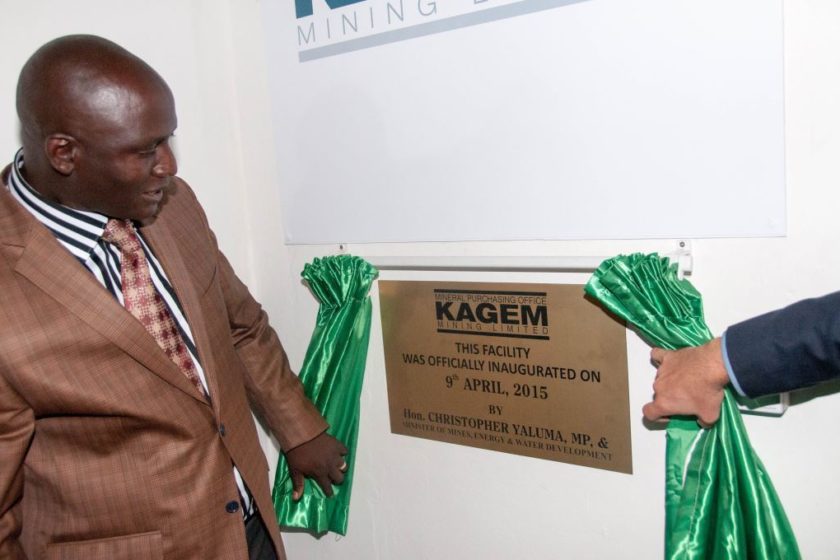Education is a vital “building block” to prosperity in any society. In Mufulira, Mopani Copper Mines Plc’s recent construction of a new classroom block at Butondo Primary School has come to symbolise much more.
It was the parents of children attending Butondo Primary School who first highlighted the need for more classrooms through regular requests to school staff for smaller class sizes. With between 40 and 50 pupils per class — and sometimes even more than 50 — teachers at Butondo Primary School have been spread very thin for a few years.
“We have challenges with [a shortage of] seating, and the number of teachers to pupils,” says Rosemary Mwape, Deputy Head Teacher at Butondo Primary School. “When you have a reasonable number of pupils, you can attend to each and every child. But, if there are many pupils in one class, some will be left out, and some will not be adequately attended to or helped while they are writing their exercises. It’s not easy, and management is concerned.”
But staff have always been extremely reluctant to turn learners away. Butondo is the only accessible school for primary school learners in the immediate area. If they can’t attend Butondo, they almost certainly won’t attend school at all.
Asking hard-up parents to chip in for the construction of new classrooms unfortunately just wasn’t possible. Although — as with all government schools — there are no tuition fees to pay at Butondo Primary School, parents do have to cover the cost of their children’s textbooks. Occasionally, the government sends a batch of books, but deliveries are sporadic. And so it was that parents and staff jointly decided to approach Mopani to ask for financial assistance to build new classrooms.
Mopani offered to build four, and the town’s largest employer soon began constructing a “one by four block”: one standalone building — rectangular-shaped — to be divided into four classrooms.
Getting the ball rolling
Sometimes getting the ball rolling is all that’s needed to open up a world of possibility, and one simple idea can often be a catalyst for greater things. The school’s staff began putting some serious thought into the value that this additional space could add to the school, and pondering the capacity that could be built.
Apart from classrooms, storage space for Science equipment was an area that was lacking, staff agreed. Soon, they identified several potential areas for growth and development. “We have to move the Mobile Lab to wherever the pupils have class, and then bring it back again,” says Mwape. “And even the computers: after using them, we take them back to the strong room where there is adequate security. So, we need a room where we could keep and secure them properly so that each and every child can use them.”
But perhaps the most pressing issue on many teachers’ minds was the four students with learning or physical disabilities who, at that point, had been enrolled in the school simply because it was the only chance that they had of receiving an education.
“In this school, we have four or five pupils who have learning difficulties or special education needs. It’s a big challenge. In the past, parents did not send these children to school. But we have a teacher who is trained in that field, so he’s now enrolling those learners. In future, if we have the space — if we have a classroom — we can use that to teach sign language, and everything they need,” explains Ms. Mwape.
With only one teacher among its team of staff who is qualified to teach these students — one who is hearing-impaired, two of whom are mute, and one of whom has a cognitive learning disability, and with all four in different grades — having a lone teacher with his own regular classes to teach will be very trying. But with proper planning and a bit more space, Butondo could fill an important gap in giving students with special needs a proper education, some of the teachers believe.
“We don’t want these learners to be left out. They are just at home in the compounds not learning anything. Their parents are keeping them at home. That’s why we are enrolling them: so that they can also learn something,” she says.
The teaching staff is considering lobbying for another teacher, and has already informed the District Education Board of their need. There are special units within schools that cater for learners with special needs in the area. But Mwape and her colleagues recognise the need for this facility in Mufulira, too. “We also need to open a unit here. Those others are too far away. Our communities need this.”
Blue skies ahead
“We don’t want these learners to be left out. That’s why we are enrolling them: so that they can also learn something.”
Outside, four construction workers from a company contracted by Mopani Copper Mines Plc were diverting a water source to a small cement mixer. The block had taken shape, its four future classrooms divided by grey walls of cement, still open to the sky.
The wet season was still a few months away, but for now the skies were blue. By the time the rains came, these would be fully insulated rooms where 40 or 50 students would be hunched over desks as the pitter-patter of water came down on its tin roof, for most only slightly drowning out the sound of their teacher’s voice.
For Mufulira’s community, seeing an idea like theirs germinate and then come to fruition inspires optimism and proactivity in ways that should not be underestimated. Today’s pupils may be in high school before they study in a dedicated computer lab and, for now, the Science Lab remains mobile. But a little bit of help goes a long way in keeping dreams for the future alive.
Source: https://miningforzambia.com/building-blocks-for-the-community/






